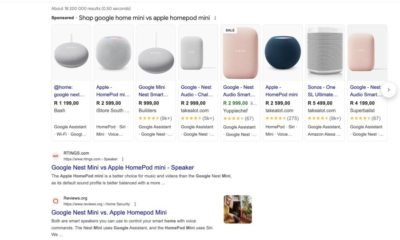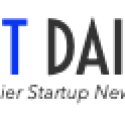Politics
Stay Ahead of the IoT Curve: 10 Experts Shaping the Industry
Published
1 year agoon
By
Drew Simpson
In today’s world, almost everything is connected. Everything is linked together in a networked world — from your appliances to your cars. This interconnectedness has led to a host of new and exciting opportunities for businesses, and the IoT (Internet of Things) is no exception.
As the IoT industry continues to grow in popularity, so does the number of experts shaping the industry. In this blog post, we’ll introduce you to the top 10 experts shaping the IoT Industry — and reveal their unique insights and perspectives on the future of this growing sector.
Alicia Asín Pérez
Alicia Asín Pérez is an expert in IoT technology and has been instrumental in shaping the industry. Asín is CEO and co-founder of Libelium and has helped bring innovative IoT solutions to the market — including the Waspmote, a wireless, modular, open-source hardware sensor platform for IoT.
Moreover, Asín is a renowned speaker known for her expert analysis of data mining. She sheds light on the pressing concerns surrounding Big Data, highlighting the importance of security and privacy in the rapidly evolving Internet of Things (IoT) landscape.
Dr. Mazlan Abbas

CEO and Co-founder of FAVORIOT, Dr. Mazlan Abbas, is another IoT expert who has significantly impacted the industry. FAVORIOT presents a tailor-made IOT platform for all Internet of Things (IoT) ventures. This platform streamlines the integration of sensor and actuator data on the Internet, making collecting and storing IOT device data effortless. Furthermore, the platform provides peace of mind for developers as they create vertical applications and offer seamless hosting solutions.
He has been recognized for his significant contributions to the field and has been a speaker at numerous industry events. As CEO of FAVORIOT, Dr. Abbas is responsible for the company’s overall strategy and vision and is committed to driving the industry forward.
Kevin Ashton

The co-founder of the Auto-ID Centre at MIT — Kevin Ashton is a pioneer in the IoT industry. He is best known for coining the term “Internet of Things” and has been instrumental in shaping the industry since its inception. With over 20 years of experience in technology, Kevin has a deep understanding of IoT and has been a critical player in its development.
Kevin Ashton’s contributions to the field of Radio-Frequency Identification (RFID) are noteworthy. As a co-founder of the Auto-ID Centre at MIT, he was instrumental in developing and promoting RFID technology for tracking and managing physical assets. Under his leadership, the Auto-ID Centre conducted groundbreaking research on RFID, creating a global standard for RFID tags and readers.
This standard has become the foundation for many RFID-based applications, including supply chain management, inventory control, and asset tracking. Through his work at the Auto-ID Centre, Kevin helped demonstrate RFID technology’s vast potential and paved the way for its widespread adoption. Today, RFID is an integral part of the Internet of Things (IoT) and continues to play a crucial role in many industries and applications.
Stacey Higginbotham

Stacey Higginbotham is a technology journalist and writer. She has a background in covering the Internet of Things (IoT) and other technology-related topics. She has written for various tech publications, including Gigaom, where she was a senior writer and editor, covering IoT and other tech trends.
Stacey is known for her insightful reporting and analysis of IoT trends and her ability to explain complex technical concepts clearly and concisely. She remains a prominent figure in the tech community and is widely respected for her contributions to the IoT industry.
Peggy Smedley

Peggy Smedley is a prominent thought leader and influencer in technology and the Internet of Things (IoT). She is a writer, speaker, and consultant known for her expertise in IoT and its impact on business and society.
Moreover, Peggy is the editorial director of IoT Institute, providing insights and analysis on the latest developments in IoT technology.
She is also the host of “The Peggy Smedley Show,” a popular podcast covering IoT and technology topics. Peggy has been recognized for her contributions to the IoT industry and has received numerous awards and accolades for her work. Through her writing, speaking, and consulting, Peggy is dedicated to promoting the understanding and adoption of IoT technology.
Andrew Thomas:

As the CRO of SkyBell, Andrew Thomas likely made a significant contribution to the Internet of Things (IoT) industry through his work with the company. SkyBell is a leading provider of smart home products, including video doorbells connected to the Internet and controlled and monitored through a smartphone app.
By developing and marketing these products, Andrew Thomas and SkyBell have helped advance the IoT industry by making smart home technology more accessible and user-friendly.
Additionally, by driving the company’s revenue growth, Andrew Thomas has helped increase investment in the IoT industry and drive innovation in the field. Through his efforts, SkyBell has likely contributed to the growth of the smart home market and the development of new and innovative IoT products.
Pete Wassell

Pete Wassell is the Founder and CEO of Augmate Corporation, a technology company specializing in developing wearable and IoT devices for enterprise customers. Augmate provides a platform for managing and deploying these devices, helping organizations efficiently and securely integrate wearable technology into their operations.
As the founder and CEO of Augmate, Pete Wassell is likely responsible for leading the company’s strategy and vision and overseeing its day-to-day operations and growth. He has likely played a significant role in shaping the company’s wearable technology and IoT approach. He has been instrumental in helping Augmate to establish itself as a key player in the industry.
Charlie Kindel

Charlie Kindel is a former General Manager of Amazon’s Alexa Smart Home division. He worked at Amazon for over five years and was responsible for developing and launching various Alexa-enabled smart home devices and services.
Kindel is a well-known figure in the technology industry, having held senior leadership positions at companies such as Microsoft, where he worked on the Windows Home Server team, and Amazon, where he was instrumental in developing the Amazon Echo and Alexa voice assistant.
Alexandra Deschamps-Sonsino

Alexandra Deschamps-Sonsino is a designer and entrepreneur who is best known for inventing the Good Night Lamp. This lighting system allows people to stay connected with loved ones in different locations.
The Good Night Lamp consists of several lamps that can be placed in different rooms in different locations, and when one lamp is turned on, all the other lamps in the system will light up as well, creating a visual connection between people who are far apart.
This product received recognition and praise for its unique and innovative design, which combines technology with a focus on human relationships and emotions.
Helen Greiner

She is a roboticist and entrepreneur who is best known as the co-founder of iRobot. This company designs and manufactures robots for various applications, including home cleaning.
Greiner co-founded iRobot in 1990 with colleagues Colin Angle and Rodney Brooks, and she played a key role in developing the company’s first product, the Roomba vacuum cleaner.
Greiner is also known for her contributions to the field of robotics, including her work on autonomous robots and mobile manipulation. She has been the recipient of various awards and honors for her work in the field of robotics and is considered a pioneer in the industry.
Parting Words
The IoT (Internet of Things) is a rapidly growing and enormously complex field, and as such, there is a lot of ground to be covered in terms of understanding its various facets. To stay at the top of the curve and keep up with the latest developments, it is crucial to follow the work of the leading experts in the field.
This blog series aims to do just that by profiling ten of the most influential individuals shaping the IoT today. Keep an eye on what these IoT leaders do next, so they understand where things are going.
Photo Image Credit: From LinkedIn Professional Profiles; Thank you!
Featured Image Credit: Photo by Tima Miroshnichenko; Pexels; Thank you!
Brad Anderson
Editor In Chief at ReadWrite
Brad is the editor overseeing contributed content at ReadWrite.com. He previously worked as an editor at PayPal and Crunchbase. You can reach him at brad at readwrite.com.
You may like
-


Video: Leah Stokes on the challenges ahead for the Inflation Reduction Act
-


How will ISO-19650 change the implementation of BIM in the AEC Industry?
-


The Intersection of SEO and IoT: The Role of SEO in Promoting IoT Devices
-


What Is XDR and Why It’s Changing the Security Industry
-


IoT Serving is Up Delicious Change: The Food Delivery Landscape
-


John Mattera’s Vision for a Global Private Exchange to Transform the Industry
Politics
Fintech Kennek raises $12.5M seed round to digitize lending
Published
7 months agoon
10/11/2023By
Drew Simpson
London-based fintech startup Kennek has raised $12.5 million in seed funding to expand its lending operating system.
According to an Oct. 10 tech.eu report, the round was led by HV Capital and included participation from Dutch Founders Fund, AlbionVC, FFVC, Plug & Play Ventures, and Syndicate One. Kennek offers software-as-a-service tools to help non-bank lenders streamline their operations using open banking, open finance, and payments.
The platform aims to automate time-consuming manual tasks and consolidate fragmented data to simplify lending. Xavier De Pauw, founder of Kennek said:
“Until kennek, lenders had to devote countless hours to menial operational tasks and deal with jumbled and hard-coded data – which makes every other part of lending a headache. As former lenders ourselves, we lived and breathed these frustrations, and built kennek to make them a thing of the past.”
The company said the latest funding round was oversubscribed and closed quickly despite the challenging fundraising environment. The new capital will be used to expand Kennek’s engineering team and strengthen its market position in the UK while exploring expansion into other European markets. Barbod Namini, Partner at lead investor HV Capital, commented on the investment:
“Kennek has developed an ambitious and genuinely unique proposition which we think can be the foundation of the entire alternative lending space. […] It is a complicated market and a solution that brings together all information and stakeholders onto a single platform is highly compelling for both lenders & the ecosystem as a whole.”
The fintech lending space has grown rapidly in recent years, but many lenders still rely on legacy systems and manual processes that limit efficiency and scalability. Kennek aims to leverage open banking and data integration to provide lenders with a more streamlined, automated lending experience.
The seed funding will allow the London-based startup to continue developing its platform and expanding its team to meet demand from non-bank lenders looking to digitize operations. Kennek’s focus on the UK and Europe also comes amid rising adoption of open banking and open finance in the regions.
Featured Image Credit: Photo from Kennek.io; Thank you!
Radek Zielinski
Radek Zielinski is an experienced technology and financial journalist with a passion for cybersecurity and futurology.
Politics
Fortune 500’s race for generative AI breakthroughs
Published
7 months agoon
10/11/2023By
Drew Simpson
As excitement around generative AI grows, Fortune 500 companies, including Goldman Sachs, are carefully examining the possible applications of this technology. A recent survey of U.S. executives indicated that 60% believe generative AI will substantially impact their businesses in the long term. However, they anticipate a one to two-year timeframe before implementing their initial solutions. This optimism stems from the potential of generative AI to revolutionize various aspects of businesses, from enhancing customer experiences to optimizing internal processes. In the short term, companies will likely focus on pilot projects and experimentation, gradually integrating generative AI into their operations as they witness its positive influence on efficiency and profitability.
Goldman Sachs’ Cautious Approach to Implementing Generative AI
In a recent interview, Goldman Sachs CIO Marco Argenti revealed that the firm has not yet implemented any generative AI use cases. Instead, the company focuses on experimentation and setting high standards before adopting the technology. Argenti recognized the desire for outcomes in areas like developer and operational efficiency but emphasized ensuring precision before putting experimental AI use cases into production.
According to Argenti, striking the right balance between driving innovation and maintaining accuracy is crucial for successfully integrating generative AI within the firm. Goldman Sachs intends to continue exploring this emerging technology’s potential benefits and applications while diligently assessing risks to ensure it meets the company’s stringent quality standards.
One possible application for Goldman Sachs is in software development, where the company has observed a 20-40% productivity increase during its trials. The goal is for 1,000 developers to utilize generative AI tools by year’s end. However, Argenti emphasized that a well-defined expectation of return on investment is necessary before fully integrating generative AI into production.
To achieve this, the company plans to implement a systematic and strategic approach to adopting generative AI, ensuring that it complements and enhances the skills of its developers. Additionally, Goldman Sachs intends to evaluate the long-term impact of generative AI on their software development processes and the overall quality of the applications being developed.
Goldman Sachs’ approach to AI implementation goes beyond merely executing models. The firm has created a platform encompassing technical, legal, and compliance assessments to filter out improper content and keep track of all interactions. This comprehensive system ensures seamless integration of artificial intelligence in operations while adhering to regulatory standards and maintaining client confidentiality. Moreover, the platform continuously improves and adapts its algorithms, allowing Goldman Sachs to stay at the forefront of technology and offer its clients the most efficient and secure services.
Featured Image Credit: Photo by Google DeepMind; Pexels; Thank you!
Deanna Ritchie
Managing Editor at ReadWrite
Deanna is the Managing Editor at ReadWrite. Previously she worked as the Editor in Chief for Startup Grind and has over 20+ years of experience in content management and content development.
Politics
UK seizes web3 opportunity simplifying crypto regulations
Published
7 months agoon
10/10/2023By
Drew Simpson
As Web3 companies increasingly consider leaving the United States due to regulatory ambiguity, the United Kingdom must simplify its cryptocurrency regulations to attract these businesses. The conservative think tank Policy Exchange recently released a report detailing ten suggestions for improving Web3 regulation in the country. Among the recommendations are reducing liability for token holders in decentralized autonomous organizations (DAOs) and encouraging the Financial Conduct Authority (FCA) to adopt alternative Know Your Customer (KYC) methodologies, such as digital identities and blockchain analytics tools. These suggestions aim to position the UK as a hub for Web3 innovation and attract blockchain-based businesses looking for a more conducive regulatory environment.
Streamlining Cryptocurrency Regulations for Innovation
To make it easier for emerging Web3 companies to navigate existing legal frameworks and contribute to the UK’s digital economy growth, the government must streamline cryptocurrency regulations and adopt forward-looking approaches. By making the regulatory landscape clear and straightforward, the UK can create an environment that fosters innovation, growth, and competitiveness in the global fintech industry.
The Policy Exchange report also recommends not weakening self-hosted wallets or treating proof-of-stake (PoS) services as financial services. This approach aims to protect the fundamental principles of decentralization and user autonomy while strongly emphasizing security and regulatory compliance. By doing so, the UK can nurture an environment that encourages innovation and the continued growth of blockchain technology.
Despite recent strict measures by UK authorities, such as His Majesty’s Treasury and the FCA, toward the digital assets sector, the proposed changes in the Policy Exchange report strive to make the UK a more attractive location for Web3 enterprises. By adopting these suggestions, the UK can demonstrate its commitment to fostering innovation in the rapidly evolving blockchain and cryptocurrency industries while ensuring a robust and transparent regulatory environment.
The ongoing uncertainty surrounding cryptocurrency regulations in various countries has prompted Web3 companies to explore alternative jurisdictions with more precise legal frameworks. As the United States grapples with regulatory ambiguity, the United Kingdom can position itself as a hub for Web3 innovation by simplifying and streamlining its cryptocurrency regulations.
Featured Image Credit: Photo by Jonathan Borba; Pexels; Thank you!
Deanna Ritchie
Managing Editor at ReadWrite
Deanna is the Managing Editor at ReadWrite. Previously she worked as the Editor in Chief for Startup Grind and has over 20+ years of experience in content management and content development.
